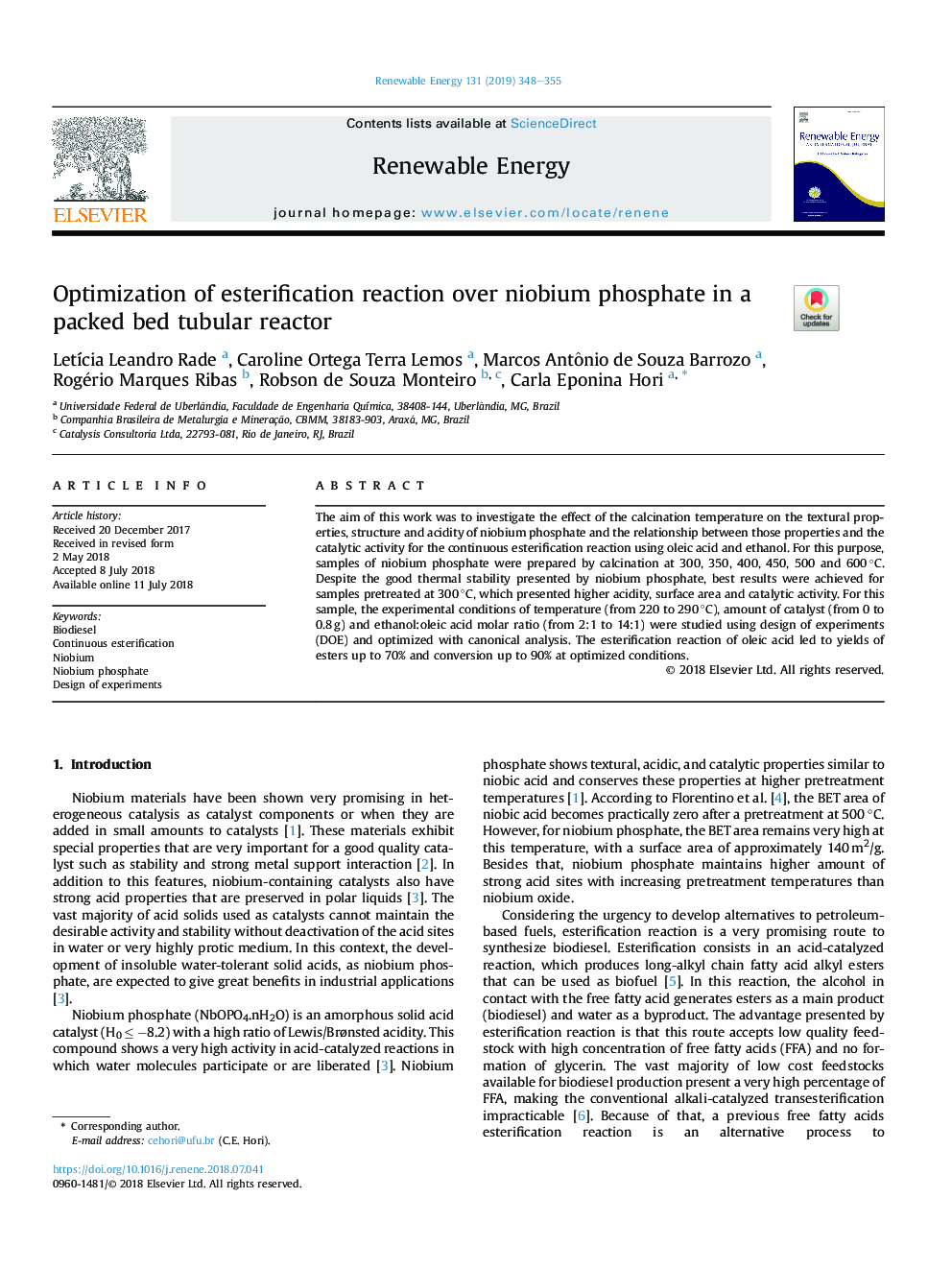| Article ID | Journal | Published Year | Pages | File Type |
|---|---|---|---|---|
| 6763634 | Renewable Energy | 2019 | 8 Pages |
Abstract
The aim of this work was to investigate the effect of the calcination temperature on the textural properties, structure and acidity of niobium phosphate and the relationship between those properties and the catalytic activity for the continuous esterification reaction using oleic acid and ethanol. For this purpose, samples of niobium phosphate were prepared by calcination at 300, 350, 400, 450, 500 and 600â¯Â°C. Despite the good thermal stability presented by niobium phosphate, best results were achieved for samples pretreated at 300â¯Â°C, which presented higher acidity, surface area and catalytic activity. For this sample, the experimental conditions of temperature (from 220 to 290â¯Â°C), amount of catalyst (from 0 to 0.8â¯g) and ethanol:oleic acid molar ratio (from 2:1 to 14:1) were studied using design of experiments (DOE) and optimized with canonical analysis. The esterification reaction of oleic acid led to yields of esters up to 70% and conversion up to 90% at optimized conditions.
Related Topics
Physical Sciences and Engineering
Energy
Renewable Energy, Sustainability and the Environment
Authors
LetÃcia Leandro Rade, Caroline Ortega Terra Lemos, Marcos Antônio de Souza Barrozo, Rogério Marques Ribas, Robson de Souza Monteiro, Carla Eponina Hori,
